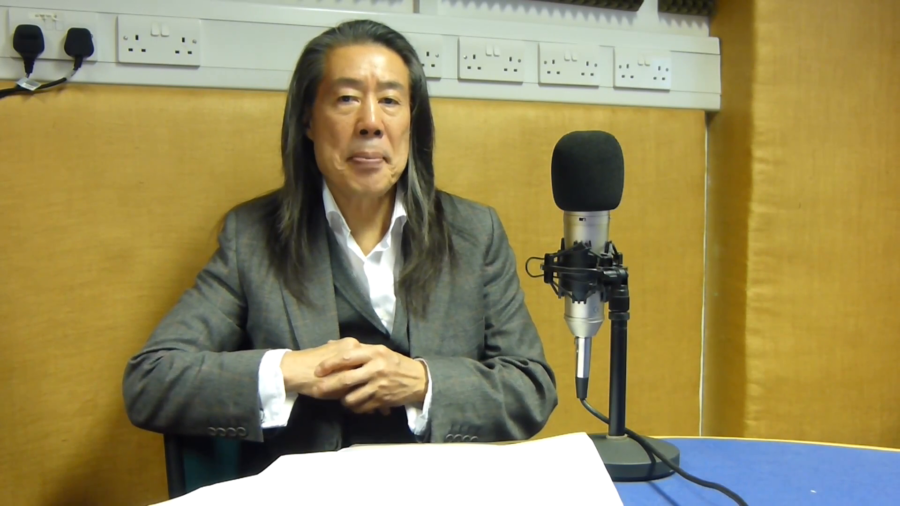Stephen Chan: At the time of the Iranian revolution in 1979, the French philosopher Michel Foucault said that this was a revolution which enunciated something new, something spiritually new that had not been seen in the world before. Later he was roundly criticized for having made such a statement, particularly after the clerical faction won the revolution. But for the first 100 days of what we call the Tehran Spring, where so much creativity and intellectual work sprang forth, it seemed that Foucault was in fact correct.
And Foucault would’ve been mindful of Ali Shariati in his time in Paris. Their circles would have coincided. And the thought of Shariati, the fusion that Shariati made of his thought, drawing from French and other European sources and infusing the intellectual debate back home with the motifs of his work, the motifs of his thought, and the idea that progress was possible on a spiritual basis that all the same resonated in the modern world, that was indeed something new.
But when you look at how Shariati did it, if you tried to analyze his methodology of thought, what you’re looking at is something which is very confusing. There are all kinds of uses not only of French philosophy, modern French philosophy, the Germanic influences on that. There’s not only that, there’s all kinds of sudden elisions, jumps in logic, which are covered by reference to poetic works from Persian history. The kinds of transcendental leaps that you find in Rumi’s poetry suddenly are used as epistemological devices in Ali Shariati’s work.
And the calling for reformation of the clergy. The calling for a reformation of the Shah’s regime—although that had to be stated in very subtle terms because of the dangers of persecution. All of this meant a fusion of let us say East and West which could not be demarcated along lines of what was rational and what was irrational. It was a mixture.
So when you try to analyze the resacralization of the secular state system, there are many mistakes that scholars particularly in the West make. They assume that resacralization is simply secularism plus the sacred added on. As if the system was still conceived in the same way, even it wishes to behave in a different way. But what in fact is going on is fragmentary, a mixture. A combination of devices of thought, devices of contingency and exigency. Really an unholy mixture that drives things forward, so that trying to analyze religious thought in today’s world is not something which can have component parts easily separated.
And the reinterpretation of scripture, particularly by Western scholars, can be a very dangerous thing. Particularly if it assumes that scripture can be interpreted along lines that the West would normally use. That is the assumption for instance that scripture is normative. It teaches you a moral code. It teaches you how to behave well and with kindness to one’s fellow human beings in the world. Scripture doesn’t have to be normative. Scripture that’s being used as part of a first principle to change the world might be used to mandate all kinds of atrocities in the world, so that the norms are negative norms. They are what you might call abnormative.
Not only that but scripture is constantly developing. We have new bodies of scripture in the world today. Scientology of course is one of those. But The Book of Mormon: a sudden revelation to Joseph Smith and suddenly you have something like an Old Testament saga set in the Americas of sometime in the past for which there is no archaeological evidence. But almost as if the open spaces of the West that Joseph Smith contemplated during his lifetime needed to have a scriptural underpinning. It was a scriptural saga for the new world of the new America.
And just over 150 years ago, the advent of the Bahá’í faith. And a very short body of scripture, but very much a body of scripture that is concerned with cleanliness. The amount of ritual that is very very much in the Bahá’í book of faith almost as it were seems to give a ritualistic metaphor for the need of a cleansing of that part of the world from which it was drawn. This was taken as a critique of Islam. Basically the same critique that Shariati made but was far too wise to enunciate in direct terms. But of course this has meant that the Bahá’í is regarded in today’s Iran still as heretical. But the need for cleansing is very very much something that echoed Shariati’s work—prefigured his work.
So when you’re looking at scripture, whether new scripture or old scripture, bearing in mind historical context becomes extremely important. Being able to read scripture in the original language and discover in that language how scripture intersects with other literary, philosophical, and cultural trends from that period in time, becomes very important. There can be no easy exegesis based on translation, for instance. It becomes a cultural excursion. It becomes a social excursion. It becomes as it were a social anthropology for which there are no defined rules.
Certainly in trying to look at translations selectively, in trying to look at commentaries selectively, in trying to apply some kind of critical theory to scripture, that is an exercise that’s doomed to failure. The interrogation of scripture, the sensibility of scripture, the hermeneutics of scripture for today’s world is something which would daunt even the most austere and gravest body of scholars, but is an exercise that all the same requires to be undertaken.
Further Reference
Religion and World Politics course information
